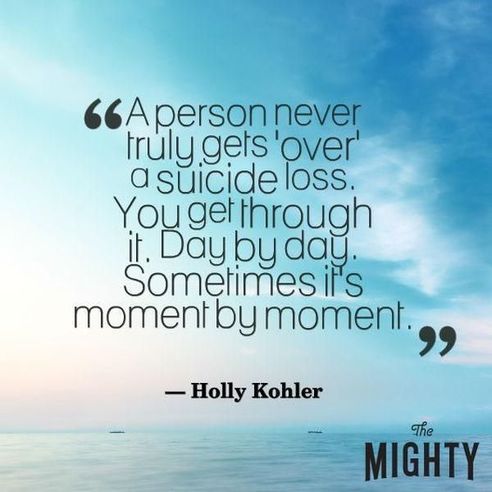|
Just a month after SPEAK was inaugurated, Dr. Sivanandha Raja and Dr. Meenakshi Raja from Karaikudi reached out to me. About six months back they had lost their brilliant teenage son Bhuvanesh Raja to suicide. We agreed to meet the next day at the SPEAK office premises.
This was born SPEAK for Survivors of suicide loss—a self-support group for those bereaved by suicide. I still remember by opening lines, “How I wish we didn’t have to be members of this group…” They nodded in complete agreement. Yes, our membership in this group was by sheer chance; not choice. We are now branded with the unwelcome designation of a survivor of suicide loss. We spent the next three hours, sharing and listening to our mutual stories of loss, pain, sorrow and anguish. All three of us felt supported and validated in a safe and supportive space. While our grief was unique in several aspects, the commonalities were overwhelming. The experiences of shame, blame, stigma, isolation and exclusion were common to all of us. All of us were and continue to be subject to speculation. Why did the person do this? People are obsessed with trying to find out the one reason why…. In such an atmosphere of doubt and blame, it is all too easy to blame ourselves. Parents who survive the suicide of their son or daughter are often blamed for having failed in their parental duty of “protecting” their children. Similarly, a wife whose husband dies of suicide is perceived as having “failed” to prevent the suicide. Interestingly, such accusations need not be explicit. Often, it is subtle and as survivors of suicide loss, we are acutely sensitive and perceptive to such sub texts. We were each other’s sounding board as we explored our fears and concerns. The collective empathy generated was reassuring; especially as we felt so “disconnected” from most people simply because others did not share our vocabulary of stigma and shame. How can we rebuild our lives with hope and courage while honoring and cherishing our loved one? What will the “new normal” in our life feel like? Will we be ever “whole” again? The truth is that no one can be “responsible” for another person. Would we blame the surviving spouse or parent if the person concerned had died of cancer or any other disease? Why then, are we so ready to brand survivors of suicide loss as having “failed” to prevent the suicide or even indirectly being a trigger? Participating in the support group was a truly healing experience for me. I felt heard’ validated and supported unconditionally. I suppose there is no substitute for lived experience. I felt reassured that my felt experience of stigma, shame and isolation were not a figment of my imagination but an expression of the empathy deficit, judgmentally and insensitivity. My friend Dr. Bharat Krishna Shankar once profoundly remarked, “the absence of judgmentality is liberation.” Seeking to change conversations on suicide and expand our understanding of this public health issue is an opportunity for everyone to step beyond judgments and moralistic stance on suicide. We need to engage with this issue with compassion and concern. Is anyone listening?
0 Comments
Leave a Reply. |
Dr. Nandini MuraliDr. Nandini Murali is a feminist and a gender and diversity professional. She is an author who also provides technical support in communications for the social sector. When she is not working, she heads off to the forests with her camera. Currently, she has a magnificent obsession with photographing leopards! Archives
October 2018
Categories |


 RSS Feed
RSS Feed
